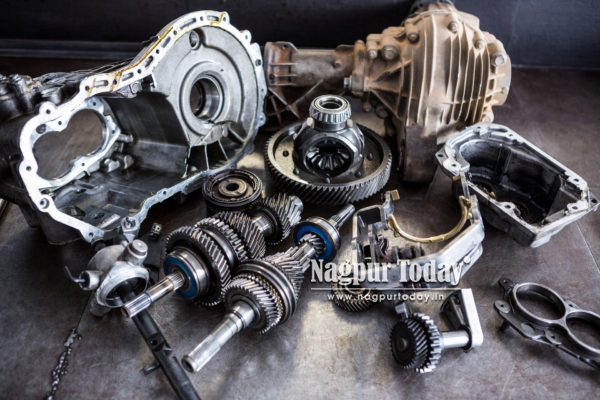
Close-up of various work tools on worktop at repair garage
Every car owner must insure their vehicle with a four-wheeler insurance policy to avail of financial coverage during unforeseen circumstances. Car insurance covers the cost of vehicle repairs and injuries caused by an accident, theft, or natural calamities.
However, vehicle owners must consider a few factors before insuring their car. One such factor is the vehicle specification, especially the engine type and size. The type of engine your car features greatly influences your car insurance premium.
Keep reading to explore the reasons why engine types and sizes affect the premium of your car insurance!
What are the Different Types of Car Engines?
Cylinders and pistons form the two main parts of a car engine. The combustion process occurs in the cylinders, providing sufficient power for the piston to function. This power is transferred to other mechanical systems, enabling a smooth car to function.
Car engines are divided into two types based on fuel type: Petrol and Diesel. It is further divided into four types based on the engine capacity. These are as follows:
- Under 1.0 litre
- 1.0 litre to 2.0 litres
- 2.0 litres to 3.0 litres
- Above 3.0 litres
This classification applies to petrol and diesel-engine cars; the only difference is that diesel engines with a displacement below 1.0 litre are not available. Moreover, vehicles with diesel engines are priced higher than those with petrol engines.
Scroll down to learn how engine size and price affect your car insurance price!
Are Insurance Premiums for Bigger Car Engines High?
A bigger engine size implies your car is more powerful than those with a smaller engine capacity and can offer high-level performance. Here are some of the points to consider in understanding how engine size affects your car insurance premium:
-
Engine Size and Power
A larger engine generally means a more powerful vehicle, which is often classified into a higher insurance group. This increases insurance premiums due to increased risks associated with higher speeds and potential damage.
-
Turbocharged Engines
These engines can be smaller yet deliver substantial power. Modern engines, even those as small as 1.0 litres, are often turbocharged to enhance performance. Despite their smaller size, turbocharged engines are considered more powerful and, consequently, more expensive to insure.
-
Insurance Group Classification
The insurance group of your vehicle is a significant factor in determining premiums. Higher groups, often associated with larger or turbocharged engines, typically result in higher insurance costs.
-
Aftermarket Modifications
Some insurance companies might not cover you if you’ve fitted a turbocharger. To ensure coverage, it’s essential to inform your insurer about any modifications.
-
Overall Impact
The power output of your vehicle, influenced by engine size and type, plays a crucial role in determining insurance premiums. Understanding these factors can help you anticipate and manage your insurance costs more effectively.
What are Powerful Engines and H Insurance Premiums?
Powerful cars have engines that deliver high performance, enabling them to reach top speeds quickly. Due to their speed capabilities, these vehicles are often associated with a higher risk of accidents.
Here are some of the crucial points that explain how powerful cars affect insurance premiums:
-
Risk of Accidents
Powerful cars are more likely to be involved in accidents due to their ability to achieve high speeds quickly. This increased risk leads insurers to anticipate more frequent and costly claims.
-
Insurance Costs
The potential for larger payouts in the event of a claim means that insurance premiums for powerful cars are typically higher. The cost of repairs or replacements for these vehicles can be substantial, further contributing to increased premiums. To get a clear idea of the premium amount, you can use the car insurance premium calculator from your insurer’s website.
Note: A car insurance calculator is an online tool that accurately computes your insurance premium by considering factors such as vehicle model, IDV, age, and policy type.
-
Driving History and Insurance Selection
While the type of vehicle is a significant factor, your driving history also plays a crucial role in determining insurance premiums. Choosing the right insurance provider can help match your needs with appropriate premiums and benefits.
Do Expensive Cars Come with a Higher Insurance Cost?
In addition to performance, expensive cars with advanced technology and high market values also face higher insurance costs. Here’s why:
-
High Value
Due to their higher value, more powerful cars are typically more expensive to purchase and insure. These vehicles often fall into higher insurance groups, which increases costs. The insurer faces higher payouts if a valuable car is stolen or written off.
-
Advanced Technology
Expensive cars often feature advanced technology, which can make repairs more costly. This raises the potential claim price, further increasing insurance premiums. Combining high-value and complex technology contributes to higher insurance costs for powerful vehicles.
Different engine types have a significant impact on car insurance costs. Larger and turbocharged engines typically result in higher premiums due to increased risk and higher repair costs. You can use a car insurance calculator to estimate these costs based on your vehicle’s specifications. This will help you make informed decisions when choosing your car and insurance policy.














